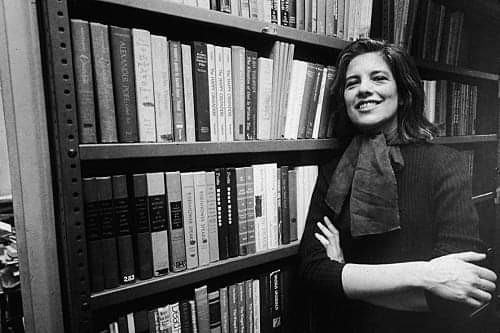Susan Sontag's quote, "I've seen academic life destroy the best writers of my generation," sheds light on the profound tension between the world of academia and the creative essence of writing.
Susan Sontag's quote, "I've seen academic life destroy the best writers of my generation," sheds light on the profound tension between the world of academia and the creative essence of writing. This observation invites a deep reflection on how the structured, often rigid environment of academia can stifle the very creativity and passion it aims to nurture.
At its core, Sontag's assertion highlights the paradox of academic life. Universities and academic institutions are designed to foster learning, critical thinking, and intellectual growth. Yet, they often impose strict frameworks and expectations that can inhibit free creative expression. Writers, who thrive on imagination, innovation, and the freedom to explore uncharted territories, may find themselves constrained by the demands of academia. The pressure to conform to academic standards, produce scholarly work, and adhere to rigid deadlines can sap the joy and spontaneity out of writing.
Moreover, the academic emphasis on critique and evaluation can be detrimental to a writer's self-esteem and confidence. The rigorous scrutiny of peers, the necessity to publish in prestigious journals, and the constant quest for tenure and recognition can create an environment of relentless competition and stress. This can lead to burnout and a loss of the intrinsic motivation that drives writers to create.
Another dimension to consider is the compartmentalization of knowledge in academia. Writers often draw inspiration from a broad range of experiences and disciplines. The academic world, however, tends to silo knowledge into specific fields and subjects. This fragmentation can limit a writer's ability to integrate diverse perspectives and ideas into their work, thus narrowing the scope of their creativity.
The financial realities of academia also play a role. Many writers turn to academic careers to support themselves financially, given the uncertain and often unrewarding nature of a writing career. However, the need to balance teaching responsibilities, administrative duties, and research commitments with personal writing projects can leave little time or energy for creative pursuits.
Yet, it is important to acknowledge that academia is not universally detrimental to all writers. Some find the intellectual stimulation, access to resources, and engagement with a community of scholars to be enriching. For these individuals, the academic environment can serve as a catalyst for their creative work rather than a hindrance.
In conclusion, Susan Sontag's quote underscores a critical reflection on the relationship between academic life and creative writing. While academia has the potential to support and enhance a writer's craft, it can also impose constraints that are antithetical to the creative spirit. Recognizing and addressing these challenges is crucial for fostering an environment where writers can thrive both intellectually and creatively.
#CreativeFreedom #AcademicChallenges #WriterLife #IntellectualParadox #CreativeExpression #AcademicPressure #ArtVsAcademia #WriterBurnout #InnovationAndCreativity #BalancingAct


